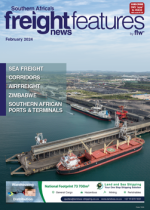Hauliers based in Zimbabwe are often less competitive than those in the rest of the region due to a number of challenges, some of which are of their own making.There are around 1 256 registered transport companies in the country. Wilfred Ramwi, general manager of the Transport Operators Association of Zimbabwe (Toaz), says challenges outside the control of the operators include lack of finance to purchase new equipment and high government levies.Domestic banks do not offer financing for periods longer than two years, with most financing limited to 180 days or less.Neighbouring countries such as Zambia have introduced measures to support their own transporters, while South African truckers benefit from larger volumes. Truckers based in the Common Market for Eastern and Southern Africa pay $150 for a carrier licence to transport goods through Zimbabwe, according to the Ministry of Transport and Infrastructure Development. A common challenge for all transport operators is border delays. Approximately 90% of cargo is moved by road, with 70% of delays due to border congestion. Zimbabwean hauliers were opting for the much longer Walvis Bay route in order to avoid congestion. Despite being around 1 000 km further than the route from Beira to Kasumbalesa, the trip to Walvis Bay took five days less on average, with the saving over the Dar es Salaam route being three days.Zimbabwean shippers are also trying to avoid the Durban congestion and risks of transporting goods on South African roads. Citrus growers have started using Beira rather than Durban for certain markets. However, a study by the Zimbabwean Chartered Institute of Logistics and Transport (Cilt) is extremely critical of the way the country’s truckers are costing their services.It found that “the idea of transport costing was alien in the minds of many operators and managers as they used borrowed rates from competitors to price their own services without looking at the cost build-up to the rate. “This led to unprofitable operations. “The study findings established that transport costing has a positive effect on organisational competitiveness. The study recommends training and development into transport costing and inclusion of this concept as a stand-alone module in the Zimbabwean education curriculum,” it states. Another Cilt study found that external costs such as accidents, traffic congestion and environmental pollution affected the profitability of Zimbabwean truckers through fines for non-compliance, compensation and insurance costs

